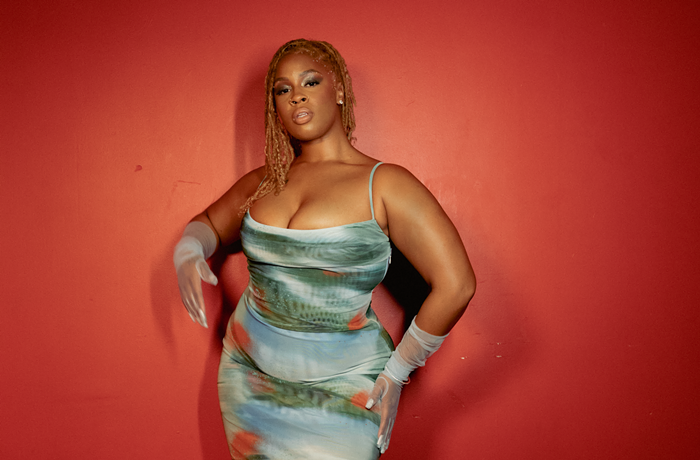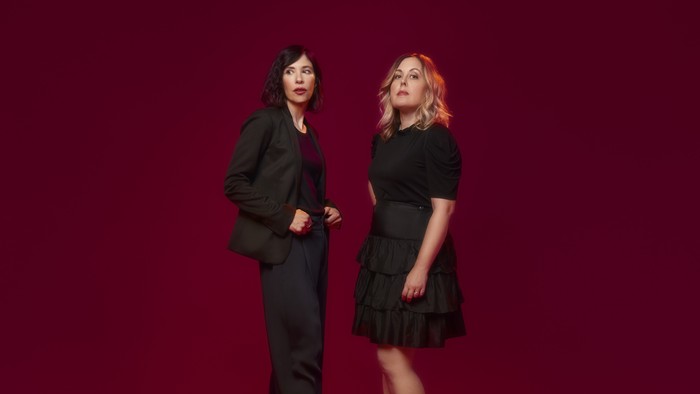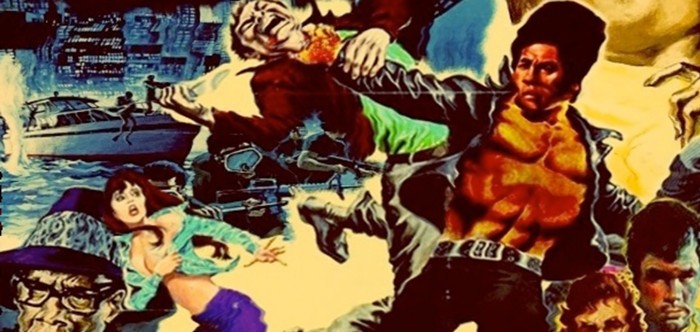AT FIRST GLANCE, an onlooker may survey the stage and marvel at the obvious differences between Thao and Mirah. At the forefront is Thao Nguyen, feet dancing over snaking cables, energetically bouncing around as if manned by one of Jim Henson's expert puppeteers. Then there is Mirah Yom Tov Zeitlyn, serene and elysian, steadily plucking away, experiencing fleeting moments of musical rapture, predictable swells with measurable intervals. Mind you, this is a purely ostensible observation. Though, it's not farfetched to say that through the ripples of pleasing sounds, staring into a space occupied by the two of them offers a clear reflection of their respective musical styles.
The true wonder of their collaboration lies in the more covert details. Their first album together, Thao & Mirah, is mostly a high-roller's game of song-for-song; one brings a fully formed tune to the table and the other adds her subtle stitches where she sees fit. As articulated by Mirah, "It's as if I'm drawing something and it has pretty, square edges, and Thao scribbles all over it in a way that makes it more three-dimensional." She refers directly to the track "Hallelujah"—a hefty, socially conscious hymn of her crafting—for an example of this. Musically, Mirah carries on in a circular picking fashion with an acoustic guitar, while Thao plugs in and adds splotches of color in the form of rhythmic fills. It's certainly tactful musicianship on Thao's part, which Mirah regards as a "responsive, empathetic voice."
The only shared lyric-writing venture between the two exists in the first song, "Eleven," which was recorded last and sequenced at the beginning as fair warning of the album's unpredictable nature. Built up in what sounds like a packed gymnasium, on a foundation of bleacher-banging percussion lent by co-producer and friend Merrill Garbus (of tUnE-yArDs), Thao and Mirah wrote their vocal parts with the other in mind, thus finding cohesiveness in the playful call-and-response nature of the lyrics. "It was a mannequin we got to dress up together," says Mirah, with a good laugh.
Though ultimately there is a stronger common bond that unifies Thao and Mirah, they are both unendingly dedicated to social and political activism, and see the stage as a platform for political engagement. "If I'm going to have the opportunity to have a public voice," says Mirah, "I would rather give up the spotlight in order to share something that really needs to be discussed."
Which is why they've teamed up with Air Traffic Control, a nonprofit organization based in San Francisco that helps touring musicians pursue specific causes on the road. For instance, on this tour Thao and Mirah have chosen to support domestic violence shelters on a grassroots level, and with the (huge amount of) research that Air Traffic Control conducts, they will be able to donate a portion of their ticket sales from every show to local shelters in each city that they play. In Portland, they'll work specifically for the Raphael House, an organization focused on providing a safe space for abuse victims, as well as community outreach and advocacy programs.
"All we want to do is play music and try to help make the world a better place," says Mirah. And with that, nothing else really matters when they both take the stage.



















